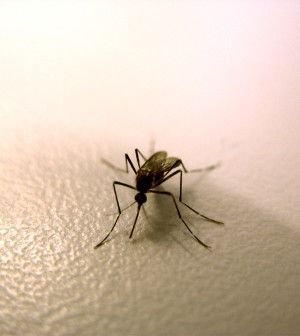- 10 Strategies to Overcome Insomnia
- Could Artificial Sweeteners Be Aging the Brain Faster?
- Techniques for Soothing Your Nervous System
- Does the Water in Your House Smell Funny? Here’s Why
- Can a Daily Dose of Apple Cider Vinegar Actually Aid Weight Loss?
- 6 Health Beverages That Can Actually Spike Your Blood Sugar
- Treatment Options for Social Anxiety Disorder
- Understanding the Connection Between Anxiety and Depression
- How Daily Prunes Can Influence Cholesterol and Inflammation
- When to Take B12 for Better Absorption and Energy
E. Coli Linked to Costco Chicken Salad Sickens 19 in Seven States

An E. coli outbreak that has so far sickened 19 people in seven states is linked to rotisserie chicken salad made and sold at Costco stores, the U.S. Centers for Disease Control and Prevention said Tuesday.
Most of the illnesses have occurred in the western United States. Affected states are California, Colorado, Missouri, Montana, Utah, Washington and Virginia.
Five patients have been hospitalized and two have developed kidney failure, the CDC said. No deaths have been reported.
An investigation found that many of the patients bought or ate rotisserie chicken salad from Costco. However, the specific ingredient in the chicken salad linked to the outbreak has not been identified, the agency said.
On Nov. 20, Costco said it had removed all remaining rotisserie chicken salad from its U.S. stores and stopped making the product until further notice.
The product is labeled “Chicken Salad made with Rotisserie Chicken” and has the item number 37719 on the label.
People who bought the chicken salad at any Costco store nationwide on or before Nov. 20 should throw it away, even if some of it has been eaten and no one has become ill, the CDC said.
The investigation is continuing and the CDC, along with state and local public health officials, are trying to identify other cases of illness associated with the chicken salad.
E. coli illness usually appears within an average of three or four days after swallowing the germ, according to the CDC. Illness can be severe and include diarrhea, often bloody, and abdominal cramps. Most people will recover within a week, but in some the illness can progress to kidney failure. Children under the age of 5, older adults and people with weakened immune systems are at highest risk from E. coli illness.
More information
There’s more on E. coli at FoodSafety.gov.
Source: HealthDay
Copyright © 2026 HealthDay. All rights reserved.










